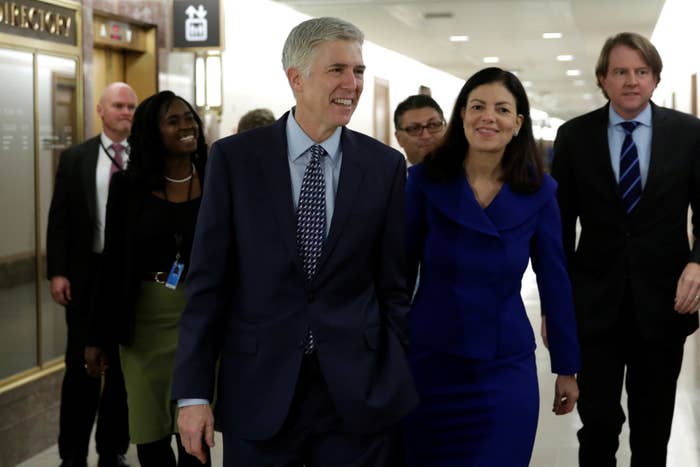
President Trump's nominee for the US Supreme Court, Judge Neil Gorsuch, described the most significant cases he'd been involved in and provided new details about the events leading up to his nomination in a questionnaire submitted to the Senate Judiciary Committee.
According to Gorsuch, he knew he'd be the nominee on Jan. 27, several days before Trump announced the pick at a White House ceremony on Jan. 31. The nomination was kept secret until then, with reporters scrambling in the hours before the announcement to check in with another judge reported to be a finalist, Judge Thomas Hardiman.
Gorsuch, a judge on the US Court of Appeals for the Tenth Circuit, wrote that he was first contacted about the Supreme Court seat on Dec. 2 by Leonard Leo, the executive vice president of the conservative lawyers group the Federalist Society, who has been a close adviser to Trump on judicial nominations. After a series of interviews with Trump advisers in early January and then Trump himself on Jan. 14, he learned on Jan. 27 from White House counsel Don McGahn that he would be the nominee. He heard it from Trump directly on Jan. 30.
In the 68-page questionnaire, Gorsuch answered questions about the groups he was a member of and his past political affiliations — he volunteered on the campaigns for presidents Ronald Reagan, George HW Bush, and George W. Bush — his writings and speeches over the years, and those of his decisions he considered most significant.
The cases that Gorsuch highlighted included disputes over religious liberty — one was a challenge to the contraception care coverage section of the Affordable Care Act — warrantless searches by police, and the amount of deference that federal agencies should get in court. In some cases, Gorsuch wrote the main opinion, while others involved concurring opinions or dissents.

